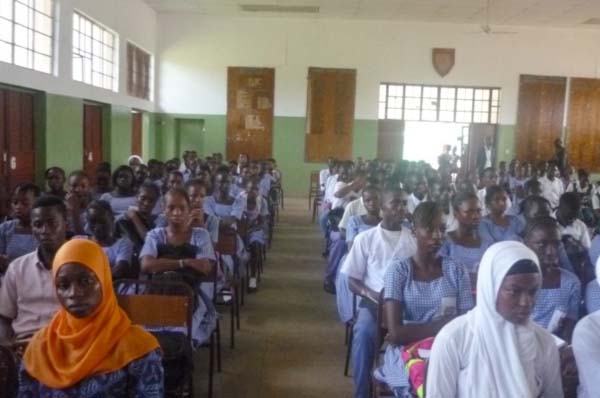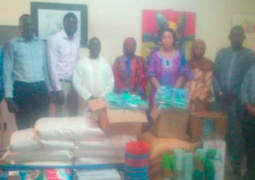
The
Ministry of Basic and Secondary Education (MoBSE), in collaboration with
UNICEF, on Thursday commemorated World’s Largest Lessons at the Gambia Senior
Secondary School in Banjul.
The
World’s Largest Lessons was developed to introduce children around the world to
the Sustainable Development Goals (SDG) in a lively and engaging way.
This
year’s commemoration focused on SDG 5: Achieving gender equality and empowering
all women and girls.
The
event provided an opportunity for the children to learn more about the SDGs and
its impact in their lives, communities and countries.
Speaking
on the occasion, Baboucarr Bouy, permanent secretary of MoBSE, said the World’s
Largest Lessons is aimed at capturing the attention of children, as well as
inspire millions of students in classrooms around the world.
The
SDGs, as a successor to the Millennium Development Goals, was developed to
mobilise efforts to end all forms of poverty, fight inequalities and tackle
climate change.
PS
Bouy noted that SDG 5 aims at ensuring that all forms of discrimination and
violence against women and girls everywhere are eliminated.
“It
further advocates for women’s active participation and equal opportunities in
all spheres of life and universal access to sexual and reproductive health.
“It
also advocates for access to ownership and control over land and other forms of
property.”
Mr
Bouy added that there is the need to adopt and strengthen sound policies and
enforceable legislations for the promotion of gender equality and the
empowerment of women and girls at all levels.
He
noted that there have been huge improvement in enrolment of girls and boys at
primary level through the MDGs, but there is still a gender gap in favour of
boys with regards to secondary education.
“As
we pursue the SDGs, filling the gender gap will be a priority for the education
sector as articulated in the new education policy, 2016-2030,” the permanent
secretary said.
He
further stated that achieving sustainable development calls for concerted
efforts for the well-being of individuals and societies, and that every
stakeholder is expected to contribute to the realisation of the new agenda.
Sara
Beysolow Nyanti, UNICEF Gambia representative, said significant progress has
been made by The Gambia towards gender equality.
“More
women are now in management and decision making positions,” she said. “Education plays a significant role in
preventing gender inequality.”
Mariama
A. Jallow, head girl of Gambia Senior Secondary School, in her vote of thanks,
thanked UNICEF and MoBSE for organising the commemoration at her school and for
broadening their knowledge on the SDGs.
Read Other Articles In Article (Archive)
GFF Regional League Update
Jun 30, 2014, 9:35 AM



